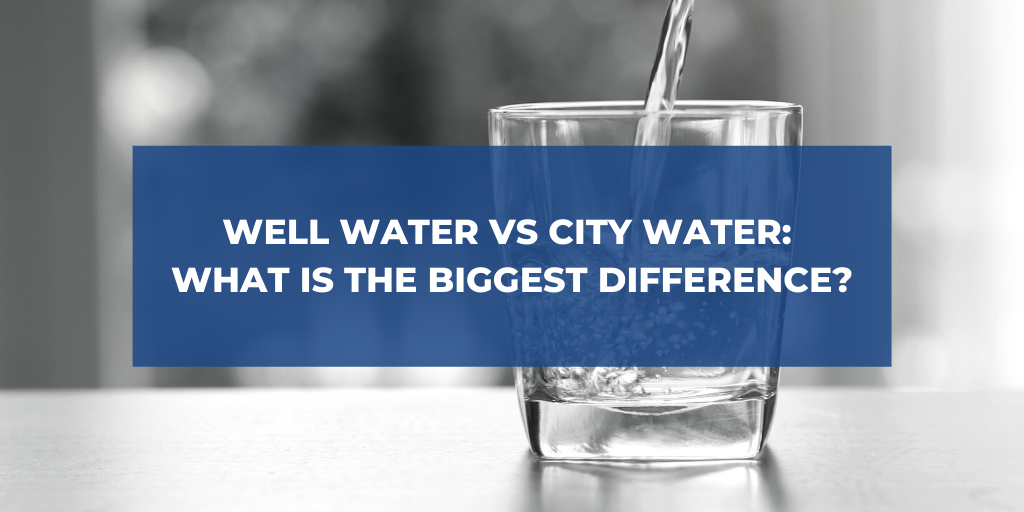We previously shared the difference between well water vs. city water. In that article, we discussed the difference in terms of property value, cost savings (on utilities), and the environmental impact. However, the question we often get is how does the water itself actually differ? Is well water really any better than the water you get from the city? If so, how and why? These are all great questions! As well drillers, we love introducing our customers and community to the many benefits of using well water vs. city water. Whether you already own a well or are considering adding one to your property, this is a great place to start your journey of understanding water wells.

Where Does Drinking Water Come From?
Understanding the key differences between well water vs. city water starts with understanding where our water actually comes from. Cities across our country pull drinking water from lakes, rivers, and groundwater. That’s right, even cities use wells to access clean drinking water.
In fact, if you live on one of the many islands in our beautiful Puget Sound region, chances are your water comes from a well. In these cases, however, the wells are often managed by private water companies. These companies work to maintain clean and healthy water based on local ordinances and standards.
Whether your water comes from a multi-household well or the city in which you live, the methods to keep your water clean are very similar. Public water goes through a rigorous treatment process to ensure it is safe to drink.
This process includes using chemicals to bind any dirt and dissolved particles in the water. Once bound, the dirt gets pushed to the bottom. The water is then filtered and the city adds more chemicals to kill bacteria, viruses, and parasites. Finally, in some locations, they add fluoride to the water to help prevent tooth decay.
While the processes vary slightly from city to city and region to region, the concept is very similar. In order to supply the public with safe water, cities use chemicals and filtration to turn rivesr, lakes, and groundwater into drinking water.

The Benefits of Well Water vs. City Water
What are the benefits of having private well water vs. city water for your home? Here are just a few of the top reasons our customers love private wells.
1. Well water tends to be cleaner. Well water comes from underground aquifers. The depth of the aquifers sometimes means the water is less impacted by natural runoff. When water runs into rivers and lakes, it carries many contaminants (from farming, pollutants, gardening chemicals, etc). These contaminants then need to be removed from the water before it is safe to drink. While well water can also be impacted by contaminants if they are near to your water source, the depth of your water often means contamination is less likely.
2. Well water contains more natural minerals. Another benefit of getting water from deep underground is the presence of more natural minerals. Again, city water collected from surface water also contains plenty of natural minerals, however, they are often removed or reduced during the treatment and filtration process. When you get water from your private well, however, these natural minerals (and their many benefits!) are still present in your drinking water.
3. As the well owner, you are responsible for the maintenance and safety of your well. Some may view this as a nuisance and prefer to the city maintain and manage their water. However, other well owners consider it a benefit to manage their own drinking water. Well-maintenance means getting your water tested annually for common contaminants. It also includes monitoring the effectiveness of your pump, well cover, and other elements of the well. For those who wish to avoid some of the chemicals used in the treatment of city drinking water, maintaining your own well is a fair trade in order to also maintain control of what is in your water.
4. You won’t get a water bill. For many, this is a huge benefit of owning a private well! If your household only uses the well (and is not also attached to city water), you won’t pay city water utilities. Instead, you can use as much water as your well provides without the monthly fee.

Is a Private Well Right for You?
Deciding if you want to add a private well to your home can feel like a big decision. If you are considering adding a well to your property, we offer many resources to help you make your decision! We provide details about the state and local departments that can help with permits and finding the best location for your well. Check our Residential Resources page to learn more about adding a well to your property.

